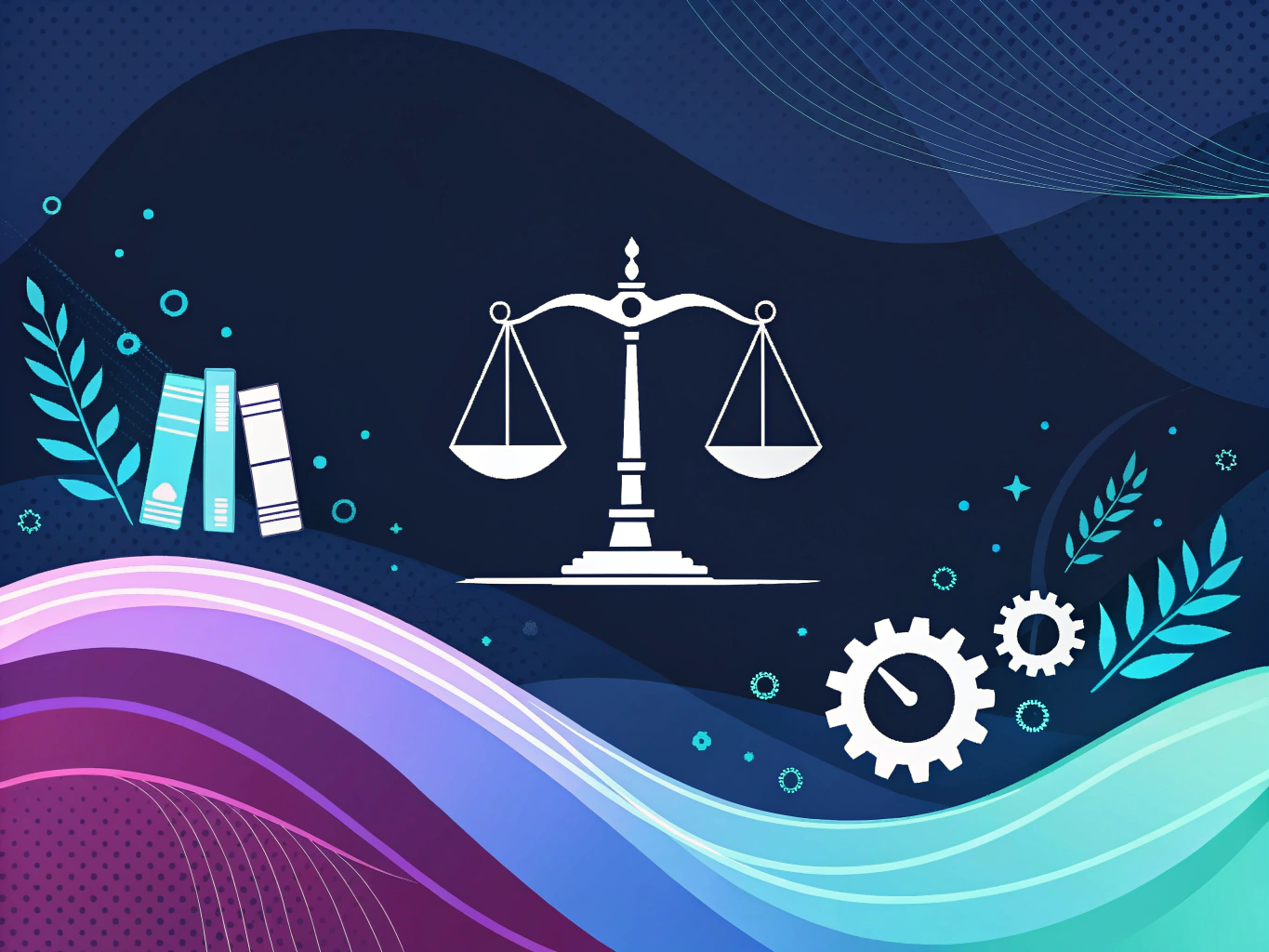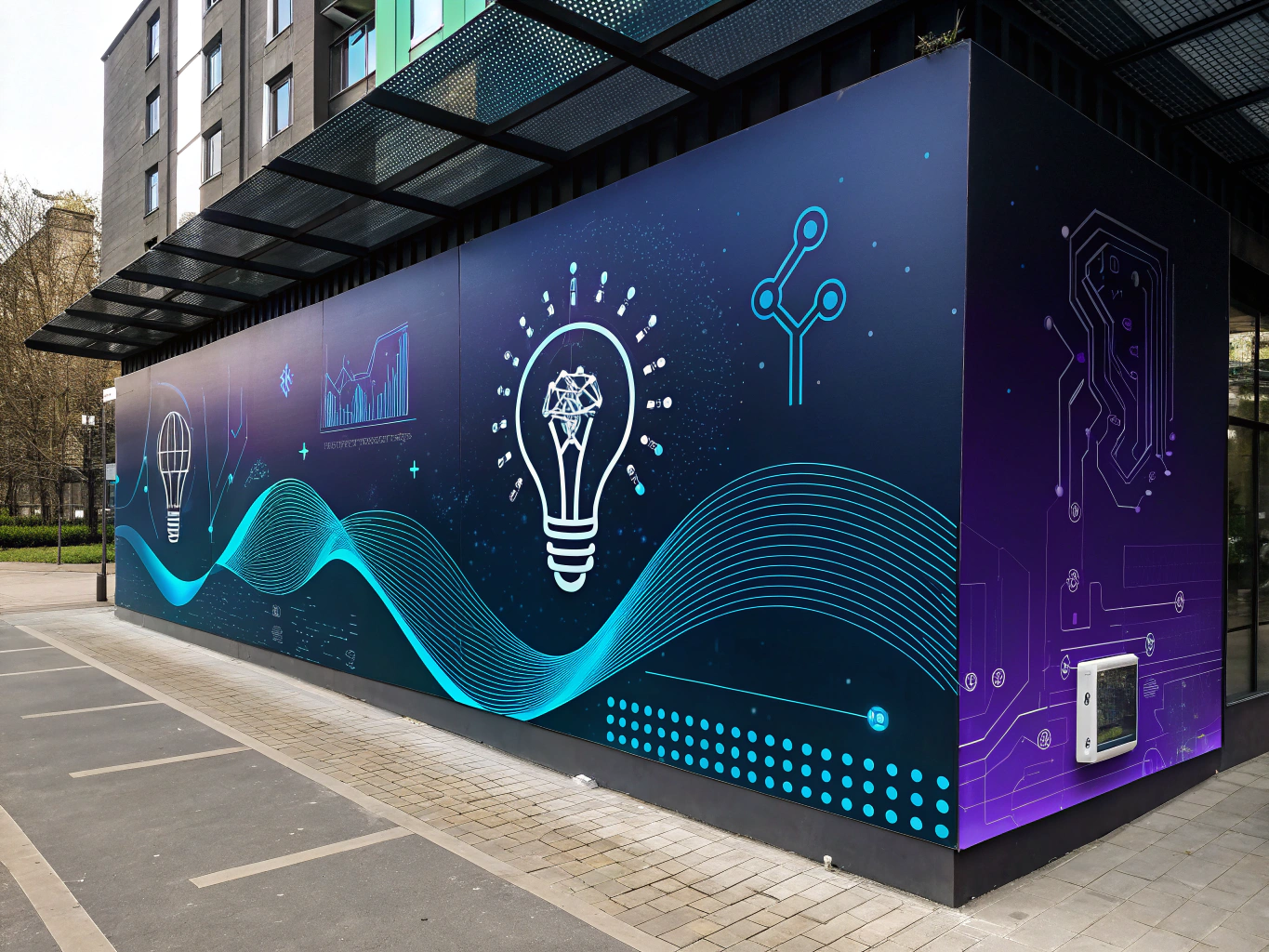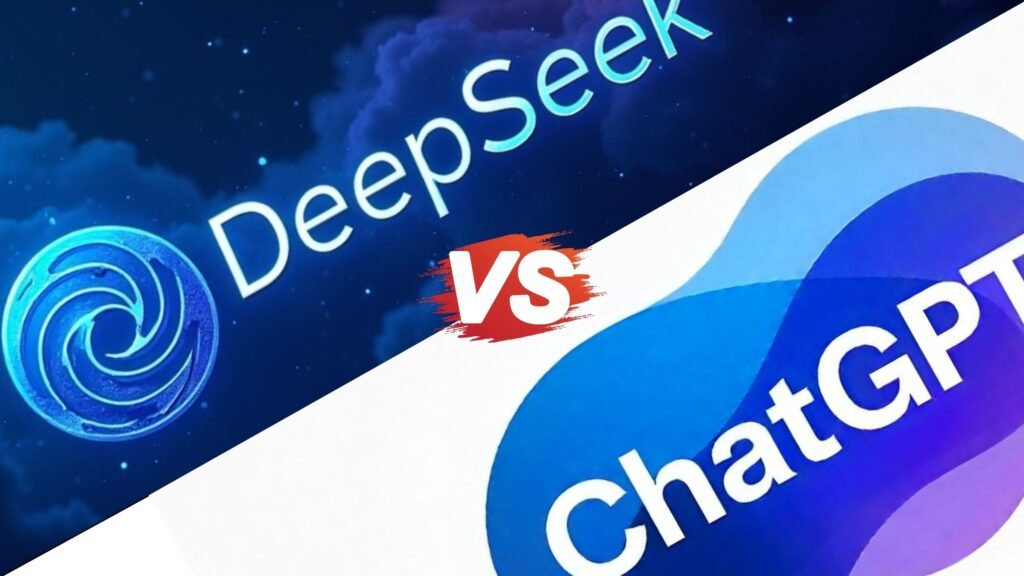The AI assistant landscape has gotten pretty wild lately, hasn’t it? Just when we thought ChatGPT had the crown locked down, DeepSeek shows up with its 671 billion parameters and starts turning heads. As someone who’s spent countless hours testing both platforms (and occasionally cursing at them when they get things wrong), I figured it’s time to break down this rivalry in a way that actually makes sense.

Here’s the thing: we’ve moved past the “OMG, AI can talk!” phase. Now we’re asking the real questions: Which one’s actually better for your specific needs? How do they stack up in terms of cost? And most importantly – can either of them consistently draw hands that don’t look like they belong in a horror movie? (Spoiler: they’re both still working on that last one.)
The Tale of Two AI Giants: DeepSeek vs ChatGPT
Let’s get something straight right off the bat – comparing DeepSeek and ChatGPT isn’t like comparing apples to apples. It’s more like comparing a Swiss Army knife to a specialized surgical tool. Both are cutting-edge (pun intended), but they’re built differently for different purposes.
DeepSeek comes in with this fascinating Mixture-of-Experts (MoE) approach – think of it as having a panel of specialized experts who only pipe up when their specific expertise is needed. It’s like having a room full of consultants but only paying attention to the ones who actually know about the topic at hand. Pretty smart, right?
ChatGPT, on the other hand, is more like that one friend who knows a little bit about everything and can hold a conversation about basically anything. As an AI answer generator, it uses a traditional transformer model where every part of its brain is engaged in every task – which has its own advantages and drawbacks.
The Technical Showdown: Architecture That Actually Matters

DeepSeek’s Selective Expertise
Remember when I mentioned those 671 billion parameters? That’s not just a big number to impress your tech friends at parties. DeepSeek’s selective activation approach means it’s not using all that firepower all the time – it’s more like having a massive team but only calling in the specialists when needed. This makes it surprisingly efficient, especially for technical tasks where precision matters more than personality.
ChatGPT’s Full-Parameter Philosophy
ChatGPT takes a different route – it’s like that overachiever who insists on being involved in everything. Every parameter is active for every task, which can make it more consistent but also more resource-hungry. It’s why ChatGPT sometimes feels more natural in conversation but might take a bit longer to crunch those complex technical problems.
Real-World Performance: Where the Rubber Meets the Road
In my testing (and trust me, I’ve put both through their paces), some clear patterns emerge. DeepSeek absolutely crushes it when it comes to mathematical accuracy – we’re talking a 90% accuracy rate on technical tasks. That’s not just impressive; it’s game-changing for developers and data scientists who need reliable computational support.
ChatGPT, while maybe not quite as mathematically gifted, shows its strengths in understanding context and nuance. It’s better at picking up on subtle cues in your prompts and maintaining consistency across long conversations. For content creators and marketers, this natural language fluency can be invaluable.
The Cost Factor: Free vs Freemium
Here’s where things get interesting – especially for those of us watching our budgets (and who isn’t?). DeepSeek took the open-source route, which means you can actually peek under the hood and even modify it if you’re technically inclined. This flexibility has sparked discussions about DeepSeek stock and whether future commercial offerings could emerge.
ChatGPT operates on what I like to call the “taste test” model – you get enough for free to know it’s good, but the really good stuff requires a subscription. For many businesses, the premium features justify the cost, but it’s worth considering whether you need all those bells and whistles.
The Learning Curve: Ease of Use vs Power

One thing I’ve noticed while implementing these tools in various projects is that they have very different learning curves. DeepSeek offers more customization options, but it might take you a while to figure out how to make the most of them. It’s like having access to a professional kitchen – great if you know what you’re doing, potentially overwhelming if you don’t.
ChatGPT prioritizes accessibility. Its interface is more intuitive, making it easier for beginners to start getting value right away. Think of it as the difference between a professional-grade DSLR camera and the latest iPhone – both can take great pictures, but one is definitely more approachable.
Development Philosophy and Future Potential
The way these platforms approach development tells us a lot about their future trajectory. DeepSeek’s emphasis on efficiency and innovative training methods suggests we’ll see more specialized capabilities and potentially even better performance on technical tasks. They’re proving you don’t need massive computational resources to achieve impressive results.
ChatGPT, backed by OpenAI’s substantial resources, continues to push the boundaries of what’s possible with language models. Their approach might be more traditional, but it’s hard to argue with their results – especially when it comes to general-purpose AI assistance.
Core Technology Comparison: What Makes These AI Models Tick?
Let’s get technical for a minute—but not too technical. Think of DeepSeek and ChatGPT as two different types of brains. One’s like a specialist team (DeepSeek) where only the relevant experts wake up for each task, while the other’s like a full committee (ChatGPT) where everyone weighs in on everything.
The Architecture Showdown: DeepSeek’s MoE vs ChatGPT’s Traditional Approach
DeepSeek’s got this fascinating thing called Mixture-of-Experts (MoE). Imagine having 671 billion tiny experts, but instead of making them all work on every single problem, DeepSeek only wakes up the ones it needs. It’s like having a massive company but only calling in the specific department heads you need for each meeting. Pretty efficient, right?
ChatGPT, on the other hand, is more like that overachiever who wants to be involved in everything. It uses what we call a traditional transformer model—think of it as having all hands on deck, all the time. While this might seem less efficient, it’s got its perks: consistency and reliability across different types of tasks.
Performance Face-Off: Speed, Accuracy, and Real-World Results
Here’s where things get interesting. In our tests at ProductScope AI, we’ve seen DeepSeek absolutely crush it when it comes to technical tasks. We’re talking 90% accuracy on complex mathematical problems—the kind of stuff that makes most AI models break a sweat. But ChatGPT isn’t exactly slouching; it’s just better at different things.
The difference between GPT 3 and GPT 4 is pretty stark when you look at the numbers. GPT-4 processes context better, handles nuance like a pro, and generally feels more “human” in its responses. But here’s the kicker: DeepSeek manages to compete with GPT-4 in many areas while using fewer resources. It’s like comparing a fuel-efficient hybrid to a powerful V8—both get you there, just differently.
Practical Applications: Where Each AI Assistant Shines

Content Creation and Writing
For ecommerce brands and content creators (hey, that’s probably you!), this is where the rubber meets the road. DeepSeek vs ChatGPT shows some fascinating contrasts here. DeepSeek excels at technical writing—product specifications, detailed tutorials, that sort of thing. It’s like having a technical writer who never gets tired.
ChatGPT, meanwhile, is your go-to for more creative, engaging content. It’s better at understanding context and crafting narratives that connect with readers. The ai comparison here isn’t about better or worse—it’s about different strengths for different needs.
Programming and Development
As someone who’s built multiple AI tools, I can tell you that both assistants handle code differently. DeepSeek is surprisingly good at understanding complex codebases and suggesting optimizations. It’s like having a senior developer who’s also really good at explaining things.
ChatGPT (especially when comparing GPT 4 compared to GPT 3) shows its strength in providing more comprehensive explanations and handling edge cases. It’s better at walking you through the why behind the code, not just the what.
Data Analysis and Research
This is where DeepSeek really flexes its mathematical muscles. Its ability to process and analyze data is impressive—think of it as having a data scientist on speed dial. The differences between GPT 3 and GPT 4 become less relevant here because DeepSeek introduces a whole new approach to handling complex calculations.
But don’t count ChatGPT out. Its strength lies in making complex data accessible and understandable. It’s like having a brilliant teacher who can break down complicated concepts into bite-sized pieces.
User Experience and Accessibility: The Human Side of AI
Interface and Daily Use
Let’s talk about what it’s actually like to use these tools day-to-day. How much cheaper is DeepSeek vs ChatGPT? Well, DeepSeek is generally more cost-effective, but there’s more to consider than just price.
ChatGPT’s interface feels more polished, more intuitive. It’s like the difference between using a sleek smartphone and a powerful but slightly clunky desktop computer. DeepSeek’s interface has a steeper learning curve, but once you get the hang of it, you can do some pretty impressive things.
Cost and Availability Considerations
The bbc comparison of these platforms highlighted something interesting: while ChatGPT’s pricing model is more straightforward (free tier with a premium option), DeepSeek’s approach to pricing is more flexible. It’s like choosing between a gym membership and pay-as-you-go classes—both can work, depending on your needs.
Real-World Applications and Integration
For ecommerce brands, the question of how good is DeepSeek vs ChatGPT often comes down to specific use cases. If you’re analyzing product trends and wondering what is the most sold item on Amazon, these AI tools can assist in breaking down sales data and identifying market leaders. If you’re running a technical product line with lots of specifications and detailed documentation needs, DeepSeek might be your best bet.
Note: But if you’re focused on creating engaging product descriptions and marketing copy, ChatGPT could be the better choice.
What is DeepSeek vs ChatGPT in terms of integration capabilities? Both platforms offer APIs, but they approach integration differently. ChatGPT’s ecosystem is more developed, with better documentation and more third-party tools. DeepSeek offers more flexibility in terms of customization, but you might need more technical expertise to make the most of it.
Specialized Features and Innovations in AI Assistants

Look, I’ve spent countless hours testing both DeepSeek and ChatGPT (probably too many, if you ask my team), and here’s what fascinates me: they’re like twins raised in different households. Same DNA, totally different personalities.
DeepSeek’s Mixture-of-Experts approach is basically like having a room full of specialists, but only calling on the ones you need for each task. It’s pretty clever – imagine having 671 billion experts but only waking up the ones who actually need to weigh in. This makes it incredibly efficient at technical tasks, especially when you’re dealing with complex mathematical problems or code generation.
The Technical Edge: Where DeepSeek Shines
What really gets me excited about DeepSeek is its resource efficiency. It’s like having a Tesla instead of a gas-guzzler – same destination, way less energy. The platform achieves 90% accuracy on technical tasks while using significantly less computational power than ChatGPT. For ecommerce brands running lean operations, this efficiency translates directly to cost savings.
But here’s where it gets interesting: ChatGPT’s distinguished features tell a different story. Its context handling is like having a conversation with someone who actually remembers what you said five minutes ago (unlike my coffee-deprived morning self). The multi-modal capabilities mean it can understand and discuss images, which is huge for content creators and marketers working across different media formats.
Future Development and Market Impact of DeepSeek vs ChatGPT
The AI assistant race isn’t slowing down – if anything, it’s heating up faster than a New York subway platform in August. Both platforms have ambitious development roadmaps that could reshape how we interact with AI.
What’s Coming Next?
DeepSeek is doubling down on its technical prowess, with planned improvements in code generation and mathematical computation. They’re also working on making their platform more accessible to non-technical users – think of it as teaching a brilliant mathematician how to explain things to us mere mortals.
ChatGPT, meanwhile, is pushing boundaries with its multimodal capabilities. OpenAI’s focus on natural language understanding and generation means we’ll likely see even more sophisticated conversation abilities and better context handling. The difference between ChatGPT 3 and 4 was already substantial – imagine what’s coming next.
Industry Impact and Market Competition
This competition between DeepSeek vs ChatGPT isn’t just about technical superiority – it’s reshaping the entire AI industry. The pressure to innovate is driving rapid advancement in AI capabilities, which benefits everyone from solo content creators to enterprise-level ecommerce operations.
Making the Right Choice: A Practical Guide
Here’s the thing about choosing between these platforms – it’s not about which one is “better.” It’s about which one better serves your specific needs. Let me break this down into practical scenarios:
For Technical Projects and Development
- Choose DeepSeek if you need: Efficient code generation, technical documentation, or mathematical computation
- Choose ChatGPT if you need: Detailed explanations, learning resources, or general programming assistance
For Content Creation and Marketing
- Choose DeepSeek if you need: Precise, technical content or data-driven analysis
- Choose ChatGPT if you need: Engaging, conversational content or multi-modal capabilities
DeepSeek vs ChatGPT: The AI Showdown – Which One Wins for You?

When comparing DeepSeek and ChatGPT, it’s clear that both excel in different areas. DeepSeek’s Mixture-of-Experts (MoE) model allows for efficient and precise responses, making it a powerhouse for technical tasks like data analysis and programming. Meanwhile, ChatGPT’s fully active transformer model enables fluid, natural conversation, making it a go-to for content creation and general problem-solving.
Content Matrix: DeepSeek vs. ChatGPT
| Feature | DeepSeek | ChatGPT |
|---|---|---|
| Pricing | Open-source (free to modify) | Freemium (free tier + paid plans) |
| Accuracy | 90% on technical tasks | Strong in general conversation |
| User Friendliness | Requires technical knowledge | Beginner-friendly interface |
| Information Depth | Excellent for structured queries | Great for creative, contextual writing |
| Mathematical Skills | Highly precise | Good but not as accurate as DeepSeek |
| Customization | High (can be modified) | Limited customization |
| Best Use Cases | Coding, data analysis, AI tasks | Content creation, customer support |
Boosting Marketing in ProductScope AI
Both AI models can significantly enhance marketing strategies in ProductScope AI:
- DeepSeek can optimize data-driven marketing campaigns, crunch analytics, and create technical product descriptions with precision. It can even assist in researching how to buy an Amazon return pallet, helping businesses identify profitable reselling opportunities.
- ChatGPT can craft engaging ad copy, blog content, and customer interactions that drive conversions.
For a well-rounded approach, leveraging both DeepSeek’s efficiency in analysis and ChatGPT’s conversational fluency can maximize marketing impact, creating data-backed, highly engaging content that resonates with audiences.
The Bottom Line: Making Your Decision
After diving deep into both platforms (and trust me, I’ve gone down some serious AI rabbit holes), here’s my take: DeepSeek is the efficiency champion, perfect for technical tasks and specialized applications. It’s like having a brilliant but somewhat introverted intern who excels at complex problems but might need help with small talk.
ChatGPT, on the other hand, is your all-around communicator. It’s like having a seasoned generalist who can handle everything from creative writing to basic coding, with a particular talent for explaining complex ideas in simple terms.
Cost Considerations
Let’s talk money – because let’s face it, that’s often the deciding factor. DeepSeek’s open-source nature makes it significantly cheaper than ChatGPT’s subscription model. If you’re running a bootstrap operation or scaling rapidly, this difference could be substantial.
Final Recommendations
For ecommerce brands and content creators, I’d suggest this approach:
- Start with ChatGPT if you’re new to AI assistants – its user-friendly interface and broad capabilities make it an excellent entry point
- Consider DeepSeek if you have specific technical needs or if cost is a major factor
- Don’t be afraid to use both – they complement each other well for different tasks
Looking Ahead: The Future of AI Assistants
The gap between DeepSeek vs ChatGPT will likely continue to evolve as both platforms develop. We’re seeing rapid advancements in AI capabilities, with new features and improvements rolling out faster than we can keep up with.
The real winners in this competition? Us – the users. This rivalry is driving innovation, pushing boundaries, and making AI more accessible and powerful than ever. Whether you choose DeepSeek, ChatGPT, or both, you’re tapping into tools that are transforming how we work, create, and solve problems.
Remember, these AI assistants aren’t here to replace human creativity and decision-making – they’re here to amplify it. They’re tools in our arsenal, not magic solutions. The key is understanding their strengths, limitations, and how to leverage them effectively for your specific needs.
As someone who’s built their business at the intersection of AI and ecommerce, I can tell you this: we’re just scratching the surface of what’s possible. The future isn’t about choosing between DeepSeek vs ChatGPT – it’s about understanding how to use these tools strategically to achieve our goals while maintaining that crucial human touch that makes our brands and content unique.
For more insights, visit our blog at ProductScope AI.
👉👉 Create Photos, Videos & Optimized Content in minutes 👈👈
Related Articles:
- The Power of CHATGPT: How It Can Boost Your Amazon Marketing
- Pixelcut AI vs Productscope AI: Ultimate Tool Showdown
- Helium 10 vs Jungle Scout vs Productscope AI: How It Helps You
- Top GPT-4o Assistants for Business
- Chatbase: Essential Strategies for Success in 2025
- eBay Chat Support: A Complete Guide for Beginners
Frequently Asked Questions
Deepseek vs ChatGPT: how do they compare?
Deepseek and ChatGPT are both AI-driven platforms, but they serve different purposes. Deepseek is primarily focused on enhancing search capabilities by providing more contextually relevant results, whereas ChatGPT excels in generating human-like conversational responses. The comparison largely depends on whether the task at hand is information retrieval or interactive communication.
How much cheaper is Deepseek vs ChatGPT?
Pricing for Deepseek versus ChatGPT can vary significantly based on usage, features, and the specific plans chosen. Generally, Deepseek might be more cost-effective for businesses focusing on search optimization, while ChatGPT’s costs are structured around API usage for conversational applications. For precise cost comparison, one would need to review the current pricing structures offered by both platforms.
What is Deepseek vs ChatGPT?
Deepseek is an AI tool designed to improve search engine functionality by providing more accurate and contextually relevant search results. ChatGPT, on the other hand, is a language model developed by OpenAI that generates human-like text for a variety of applications, including chatbots and content creation. Both utilize advanced AI but are optimized for different types of tasks.
How good is Deepseek vs ChatGPT?
The effectiveness of Deepseek versus ChatGPT depends on the specific application. Deepseek is highly effective in scenarios requiring refined search capabilities, while ChatGPT is acclaimed for its ability to produce coherent and contextually aware text in conversational settings. Each tool performs exceptionally well within its niche, making them both valuable depending on user needs.
Between Deepseek vs ChatGPT, which is better?
Determining which is better between Deepseek and ChatGPT depends on the intended use. Deepseek is superior for tasks involving search and data retrieval, offering advanced search precision. ChatGPT stands out in generating conversational text and engaging with users in a natural manner. Ultimately, the choice should be guided by the specific requirements of the task or project at hand.
About the Author
Vijay Jacob is the founder and chief contributing writer for ProductScope AI focused on storytelling in AI and tech. You can follow him on X and LinkedIn, and ProductScope AI on X and on LinkedIn.
We’re also building a powerful AI Studio for Brands & Creators to sell smarter and faster with AI. With PS Studio you can generate AI Images, AI Videos, Chat and Automate repeat writing with AI Agents that can produce content in your voice and tone all in one place. If you sell on Amazon you can even optimize your Amazon Product Listings or get unique customer insights with PS Optimize.
🎁 Limited time Bonus: I put together an exclusive welcome gift called the “Formula,” which includes all of my free checklists (from SEO to Image Design to content creation at scale), including the top AI agents, and ways to scale your brand & content strategy today. Sign up free to get 200 PS Studio credits on us, and as a bonus, you will receive the “formula” via email as a thank you for your time.
